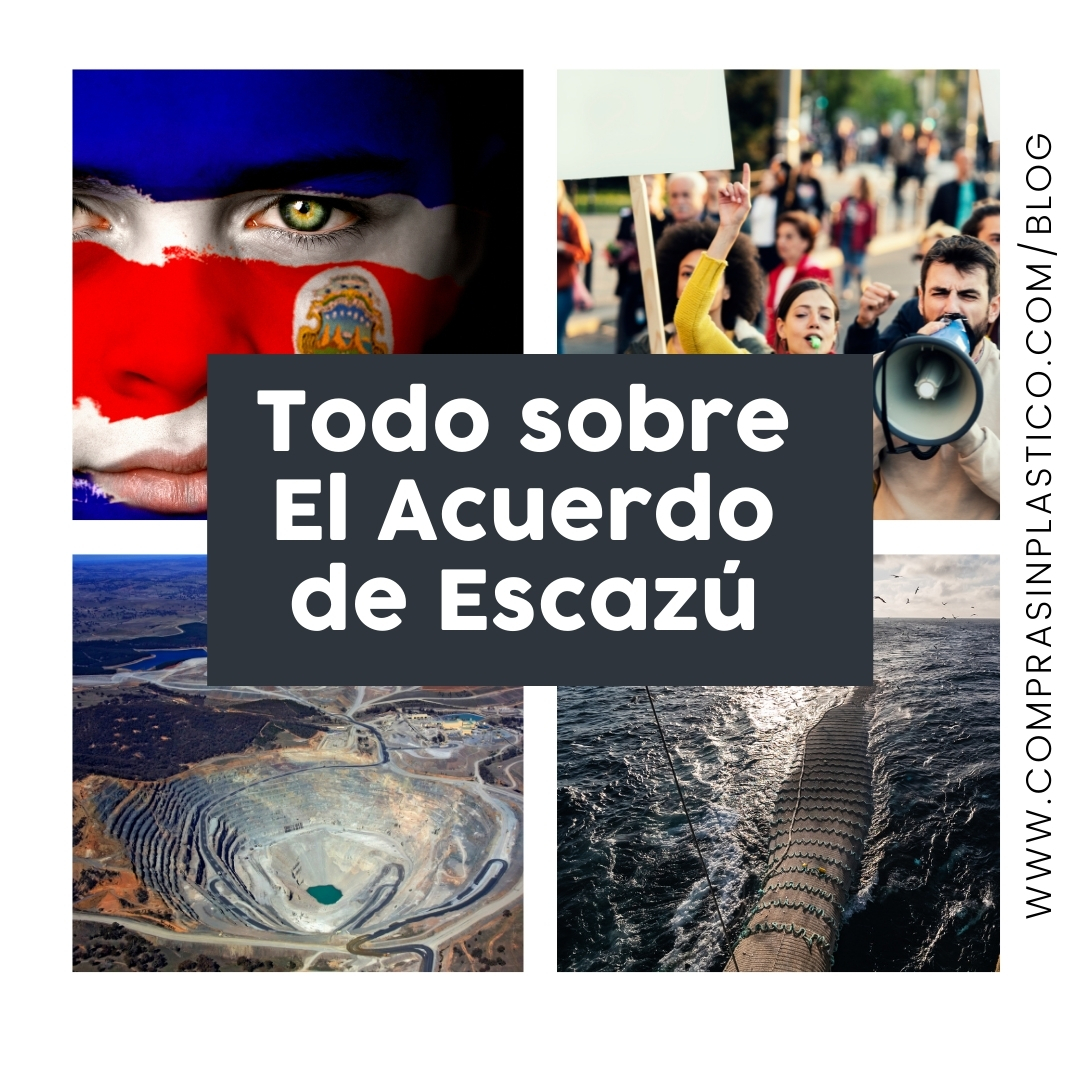Se trata del primer acuerdo ambiental de América Latina y el Caribe, cuya negociación fue impulsada principalmente por Costa Rica y Chile, países que, curiosamente no lo han ratificado.
Antonio Guterres, Secretario General de Naciones Unidas, mencionó que el objeto del Acuerdo de Escazú es “luchar contra la desigualdad y la discriminación y garantizar los derechos de todas las personas a un medio ambiente sano y al desarrollo sostenible, dedicando especial atención a las personas y grupos en situación de vulnerabilidad y colocando la igualdad en el centro del desarrollo sostenible.”
Entonces, podemos decir que es el esfuerzo de los gobiernos de una de las regiones más biodiversas del mundo, para finalmente, interesarse en atacar la crisis climática. Tiene sentido, si nos fijamos en el hecho de que América Latina soporta gran parte de los embates ocasionados por los desastres naturales, situación que a medida que avance la crisis climática, sólo se agravará.
Además, es el primer tratado en todo el mundo, que habla de los derechos de las personas defensoras del medio ambiente de manera específica. Lo cual no es para nada un dato menor, ya que se trata de una región particularmente golpeada por la violencia hacia las personas que defienden el ambiente.
De hecho, según datos de la organización Global Witness, América Latina alberga 6 de los 7 países donde más personas líderes por los derechos humanos y el medio ambiente fueron asesinadas durante el año 2019. En Costa Rica, el caso de Jairo Mora aún estremece en el recuerdo colectivo, pero está lejos de ser una situación aislada. Pero dejemos que sean los números quiénes nos ilustren
Quienes son Colombia con 64 personas defensoras del ambiente asesinadas, Filipinas con 43, Brasil (24), México (18), Honduras (14), Guatemala (12) y Venezuela (8). De estos países, únicamente México ha ratificado el acuerdo.
Desde un punto de vista formal, el acuerdo surge como un desarrollo más claro, del acuerdo 10 de la Declaración de Rio de Janeiro de 1982, que establece que las personas tienen derecho a acceder a la información de proyectos que puedan poner en peligro el medio ambiente, como explotaciones mineras, proyectos inmobiliarios o la pesca de arrastre.
Su importancia, entonces, radica en el hecho de ser una acción concreta multilateral enfocada en la protección del medio ambiente, cubriendo además a las personas que luchan por él y permitiendo que las comunidades se informen sobre los proyectos que afectan su entorno.
¿Cuáles son sus principales aspectos?
En su artículo 1, el Acuerdo de Escazú establece que:
“El objetivo del presente Acuerdo es garantizar la implementación plena y efectiva en América Latina y el Caribe de los derechos de acceso a la información ambiental, participación pública en los procesos de toma de decisiones ambientales y acceso a la justicia en asuntos ambientales, así como la creación y el fortalecimiento de las capacidades y la cooperación, contribuyendo a la protección del derecho de cada persona, de las generaciones presentes y futuras, a vivir en un medio ambiente sano y al desarrollo sostenible.”
En efecto, las tres principales propuestas del Acuerdo son: acceso a la información, participación pública y acceso a la Justicia en asuntos ambientales.
En cuanto al primero de estos aspectos, debemos aclarar que cualquier actividad humana tiene un impacto en el medio ambiente. Por eso resulta clave, previo a que se implemente, saber cuáles serían los efectos en la naturaleza de una determinada industria, cómo podemos mitigarlos y si existen alternativas menos perjudiciales para alcanzar determinados objetivos. Por eso resulta clave contar con información fiable, de calidad y accesible para todas las personas que puedan verse afectadas con un cierto proyecto o actividad comercial.
En cuanto a la participación, lo que se busca es incluir a la comunidad en el proceso de adopción e implementación de una actividad comercial que se quiera desarrollar. En este caso, podemos pensar en las comunidades indígenas, muchas de las cuales viven en lugares con recursos naturales codiciados. En otras palabras, se busca que las personas puedan tener influencia real en la toma de decisiones sobre los distintos proyectos. Algo que, en sociedades democráticas no tendría por qué ser adversado con tanta vehemencia, pero ya volveremos sobre este punto en el siguiente apartado.
Finalmente, el acceso a la justicia en asuntos ambientales, como se anunció desde el inicio, tiene una importancia medular en América Latina. Especialmente si vemos que la mayoría de crímenes en contra de defensores ambientales continúan impunes. Sin mencionar los reclamos por los estragos que algunas industrias han provocado en las comunidades.
Podría decirse, entonces, que el Acuerdo de Escazú es una medida de sensatez o un asunto de sentido común. Sin embargo, ha enfrentado una fuerte oposición por parte de algunos sectores empresariales. Como señala el profesor Nicolás Boeglin:
“Raramente, un tratado internacional ha desatado una campaña de desinformación como la que enfrenta el Acuerdo de Escazú. Esta ha sido gestada desde algunos sectores y algunas cúpulas empresariales, las cuales han sido ayudadas por algunos medios de prensa afines y sus repetidoras locales, así como por algunos profesionales de la ciencia jurídica. Ello explica (al menos en parte) el hecho de que, a tres años desde su adopción en Escazú, el Acuerdo solamente ha sido ratificado por 12 Estados (de 33 posibles Estados Partes).”
Pero lo importante es, ¿por qué ocurre esto? Veamos el asunto un poco más a fondo.
¿Por qué es tan polémico el Acuerdo de Escazú?
Como ya se anunciaba desde el inicio, Chile y Costa Rica, los principales impulsores del acuerdo no lo han ratificado. En el caso chileno, Carolina Schmidt, Ministra del Medio Ambiente en Chile señaló como argumentos para oponerse que, el texto final del acuerdo (el cual fue promovido por su país) quedó de una manera ambigua y, además su carácter “supra legal.” Este alegato es muy importante, porque fue acogido por algunos de los sectores costarricenses que se oponen al tratado.
Sin embargo, tales alegatos no tienen mucho sentido desde el punto de vista legal. Ya que, los acuerdos internacionales en materia de Derechos Humanos siempre se encuentran por encima de la legislación nacional, por lo que oponerse a un tratado por este motivo es desconocer la materia de la que se habla. No se trata de algo sorpresivo, sino intrínseco a cualquier instrumento de esta naturaleza. En términos sencillos, sería como querer comprar un vehículo y luego oponerse a la hora de firmar el contrato porque se debe pagar el mismo.
En todo caso, valga decir que lo que se busca es, precisamente, que los países que lo adopten adecuen su legislación a lograr los fines de información, participación y justicia, explicados en el apartado anterior.
En el caso de Costa Rica, la UCCAEP es quizás quién más férreamente se ha opuesto al acuerdo. Entre sus principales objeciones destacan:
- Se crea un mecanismo inadecuado de participación del público.
- No aporta nada nuevo a los mecanismos de participación pública con los que ya cuenta el país.
- Ante una acusación de daño ambiental, la empresa es la que debe demostrar su inocencia, desconociendo así el principio de inocencia en la Constitución Política.
- Las medidas cautelares pueden afectar la producción.
En cuanto a los dos primeros alegatos, lo primero que debe decirse es que son completamente contradictorios. Es decir, no se puede crear algo nuevo y decir que no se está aportando nada nuevo a la vez. En todo caso, lo que rescata el acuerdo es la participación de las personas en proyectos que vayan a afectarles directamente. Por ejemplo, una represa o el establecimiento de una mina en un lugar, garantizando que quienes allí vivan puedan opinar al respecto.
El aspecto de la presunción de inocencia, parece malicioso de entrada, ya que es una evidente confusión de materias. Esta garantía está reservada para el derecho penal, no así para otras esferas jurídicas. Es decir, no se infringe la Constitución si se le pide a una empresa que va a construir un hotel en la playa, que demuestre que no ha invadido una zona protegida.
Y, finalmente, en cuanto a la producción, lo primero que debemos aclarar sin ningún tipo de miramiento es que las ganancias privadas no pueden estar por encima del bienestar de la comunidad. En otras palabras, al igual que en los casos de la pesca de arrastre o la minería a cielo abierto, el dinero no puede ser el valor preponderante, por encima de la vida o la naturaleza. De hecho, esto sí que está protegido en el artículo 50 de la Constitución, que garantiza el derecho a un medio ambiente sano y ecológicamente equilibrado.
Por donde se miren, los alegatos en contra del Acuerdo no se sostienen.
Conclusiones
Ben Leather, intentó resumir el asunto de la siguiente forma: “las empresas tienen que implementar políticas que permitan asegurar que sus inversiones y sus operaciones no afectan los derechos de las comunidades y no están contribuyendo a que se realicen ataques en contra de las personas defensoras del medio ambiente.”
La crisis climática es real y sus efectos empiezan a dejarse sentir. Ante ello, la comunidad internacional debe buscar trabajar en conjunto para dar un golpe de timón, y cambiar el rumbo de las cosas. No querer abrir los ojos a esta realidad, solo empeora el problema.
Por lo tanto, los argumentos para oponerse al Acuerdo no tienen mayor fundamento, más allá de una protección a ultranza de la producción por encima de la naturaleza. Hemos visto, que este instrumento internacional simplemente busca, que la región donde más se asesinan ambientalistas en el mundo, procure cambiar esta situación. También, busca dotar de voz a las comunidades, de las cuales se extraen los recursos que tanta riqueza generan, y garantizar que el público en general pueda contar con información clara sobre los proyectos industriales y comerciales, que estén relacionados con el medio ambiente.
El Acuerdo de Escazú, fue impulsado por Costa Rica, y el hecho de no ratificarlo a pesar de ya haber entrado en vigencia deja una pobre imagen del país ante la comunidad internacional. Además, con vista a los crímenes que han sufrido las personas ambientalistas, sólo podemos pensar en la urgencia de la implementación de mayores mecanismos de protección.
Por eso es importante el Acuerdo de Escazú. Para un país que vive de la naturaleza y que encierra tantos recursos medioambientales, no formar parte es un lujo que no podemos darnos. Es hora de ser consecuentes y estar a la altura de las circunstancias.
- Citado por https://ciarglobal.com/acuerdo-de-escazu-para-la-defensa-de-derechos-humanos-en-asuntos-ambientales/
- Acuerdo de Escazú, artículo primero.
- Boeglin, Nicolás en: Voz experta: ¿Escazú sin Costa Rica? Así como se oye, por más extraño que suene (ucr.ac.cr)
- https://www.france24.com/es/programas/medio-ambiente/20210428-acuerdo-de-escazu-camino-america-latina
- https://www.uccaep.or.cr/index.php/comunicados-prensa/60-comunicados-de-prensa/660-acuerdo-de-escazu-va-en-contra-de-la-seguridad-juridica-de-las-empresas-y-la-reactivacion-economica.html
- Ben Leather, en https://es.mongabay.com “defensores ambientales asesinados”



